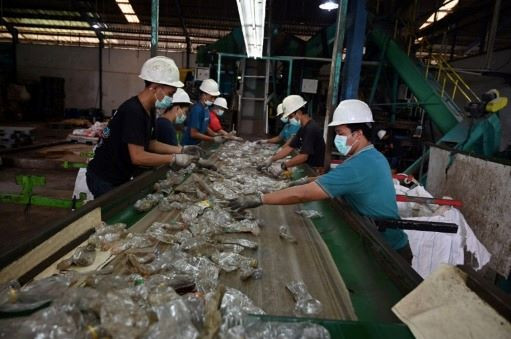Popular Reads
Top Results
Can't find what you're looking for?
View all search resultsPopular Reads
Top Results
Can't find what you're looking for?
View all search resultsMay Day in uncertain times: Reclaiming hope through social dialogue
A nation cannot rise if its workers and employers regard each other with suspicion instead of solidarity.
Change text size
Gift Premium Articles
to Anyone
T
his May Day, we are not just commemorating labor, we are confronting a sobering economic reality. The recent announcement of tariffs by the United States President Donald Trump has reignited global trade tensions, sending shockwaves through supply chains and investor sentiment alike.
In an already uncertain climate, this adds yet another layer of volatility that businesses and workers must navigate. At the heart of all this turbulence lies the most painful outcome: waves of layoffs that cut deep across industries.
Today, we stand at a critical crossroads. The wave of layoffs we have seen may only be the beginning. According to APINDO’s March 2025 survey, 52.2 percent of companies reported workforce reductions over the past year. Even more concerning, 67.1 percent of companies indicated that they do not plan to make new investments within the next 12 months.
In this climate of deep uncertainty, we must ask ourselves: what must be done?
A nation cannot rise if its workers and employers regard each other with suspicion instead of solidarity.
Every May 1, the world pauses to reflect on the struggles and aspirations of workers. But in Indonesia, this day is often overshadowed by anxiety over layoffs and economic pressure. Layoffs are never an ideal decision for any employer. They are painful choices made under immense duress. In an era of global volatility, many businesses are facing liquidity crises, collapsing demand, and unsustainable cost burdens. This is where mutual understanding becomes essential. Employers and workers are not adversaries, they are part of one interdependent ecosystem.
In these challenging times, it is vital to remember that Indonesia has faced economic storms before. We prevailed when workers and employers stood together.
In 1974, the formulation of the Hubungan Industrial Pancasila marked a turning point in workers and employers relations. It wasn't just a legal commitment, but a model based on mutual understanding, empathy and national unity. The principle was clear, problems between employers and workers must be resolved through constructive and solution-oriented dialogue.
This principle was tested in the mid-1980s, during widespread layoffs and economic tightening. It was a difficult moment for both employers and workers. But instead of turning to confrontation, dialogue became the way forward.
Through discussions, both sides tried to understand each other. Businesses shared their struggles and workers shared their needs. Step by step, trust was built. Soon after, in the late 1980s, Indonesia entered a new phase of growth. Massive industrial zones were developed, factories opened, jobs were created. This progress was possible because employers, workers and all elements of the nation moved together.
Even during the 1997-1998 crisis, when unemployment spiked to over 10 percent, with more than 9 million people out of work, the foundation of labor-business cooperation prevented total collapse.
The spirit was clearly shown in 2001 at the ILO International Labour Conference, where the Indonesian delegation, consisting of government, workers and employers, reached a mutual agreement not to raise domestic disputes, but to demonstrate a shared commitment to national recovery. It was a reminder that progress happens when we face crises as one nation with one purpose.
This spirit is the backbone of what we now call Indonesia Incorporated, a call for collective responsibility and joint action across the public and private sectors. In this model, labor, business and government are not three separate forces pulling in different directions, but parts of one unified national engine.
And perhaps, there is no better moment to strengthen this engine than now. What if this May Day could be more than a commemoration, what if it became the birthplace of a new social compact? One that does not merely respond to crises but actively equips Indonesia’s labor ecosystem for the future of work.
This is not a far-off ideal. In fact, the groundwork is already being laid. We are seeing real, tangible examples of what this renewed social compact could look like, starting with the evolving partnership between APINDO and KSBSI.
In 2024, APINDO and KSBSI addressed widespread public concern over the Tapera policy in a joint press conference. Most recently, in 2025, we reengaged through a social dialogue, underscoring our shared commitment to navigating current challenges side by side.
These continued efforts prove that trust is built through years of choosing partnership instead of polarization.
As we face an uncertain road ahead, let us not default to blame or fear. Let us instead chart a path forward together. A stronger Indonesia begins not with slogans, but with shared solutions.
---
Shinta W. Kamdani is chairperson of the Indonesian Employers Association (APINDO). Elly Rosita is president of Confederation of Indonesia Prosperity Trade Union (KSBSI).











